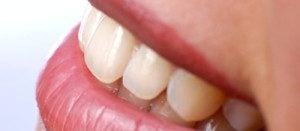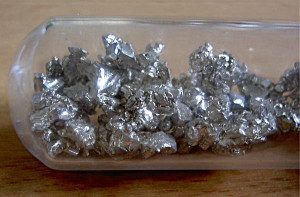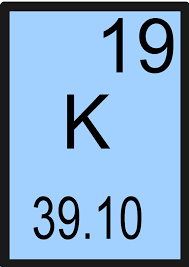Your mouth is one of the most important – and often overlooked – parts of your body and, just like every other part, requires specific nutrients and vitamins.
To make it easy to eat your way to a healthy smile, we made a list of all the vitamins and minerals your mouth needs most, and which foods you can find them in. This way you can make sure that when you’re eating well, you’re eating for your oral health too!

Vitamin A

Though it’s often just associated with carrots and good eyesight, vitamin A is essential for keeping your mouth’s saliva supply flowing. It helps to maintain healthy mucous membranes which coat your gums and cheeks, making them less susceptible to disease.
It also promotes saliva production, which is crucial for cleaning away destructive bacteria and food particles from between teeth and gums.
Aside from carrots, vitamin A is abundant in other orange fruits and vegetables such as peppers and sweet potatoes, as well as being present in dark leafy greens like kale, spinach, and collard greens. You can also find it in proteins like egg yolks and fish.
B Vitamins
B vitamins, specifically niacin and riboflavin, ward off mouth sores and oral inflammation. If you find yourself getting canker sores or inflammation in the gums or tongue, try incorporating more of these vitamins into your diet in addition to seeing your dentist. You can find niacin and riboflavin in poultry, fish, red meats, dairy products, spinach, almonds, and legumes.
Vitamin C
Vitamin C is essential in keeping the connective tissues of your gums strong. Without enough of it, the tissues holding teeth securely in place weaken, teeth can become loose, gums can bleed, and gum disease could become a danger.
Did you know that scurvy (yes, that thing pirates get!) was caused by a lack of vitamin C? It resulted in many sailors needlessly losing teeth before it was discovered that having a stockpile of limes or lemons on hand could easily fix the problem. Extra fun fact: that’s why the English came to have the somewhat cheeky nickname of ‘Limeys’.

So be sure to eat foods such as sweet potatoes, peppers, broccoli, berries, oranges, kale, and berries which are high in vitamin C and will keep those gum tissues healthy. Yarrr!
Calcium
Calcium is one mineral that is already well-known for keeping teeth healthy – and with good reason! Your teeth and supporting jaw bones are largely made up of calcium. It’s also needed for normal development and to keep them strong.

When not enough of the mineral is consumed, your body automatically takes the calcium it needs from your bones, which can compromise their strength and integrity. To avoid this and to make sure that your mouth’s supporting bones are as sturdy as possible, include in your diet foods with adequate calcium content such as leafy green vegetables, broccoli, sardines, almonds, legumes, oysters, and of course dairy products (as long as they don’t have too much sugar). And if in doubt, consider buying some calcium supplements or seeing a doctor.
Phosphorus
Studies have shown that in order for calcium to fully absorb into the body and promote notable bone health, it needs to be paired with phosphorus. Most dairy products contain both phosphorus and calcium together, however many calcium supplements don’t have phosphorus in them.
This means that in order to reap the benefits of taking calcium supplements, phosphorus is going to have to be consumed through diet. Foods high in phosphorus include milk, cheese, yogurt, red meat, beans, lentils, nuts, and whole grains.
Vitamin D
Vitamin D is very important for your oral health as it is what allows us to absorb calcium. Without it, your entire mouth would suffer from calcium deficiency, leading to underdeveloped teeth, gum disease, and tooth decay.
You can acquire all the vitamin D that you body needs just by sitting in direct sunlight for 15 minutes each day. You can also eat foods such as milk, eggs, fish, cod liver oil, and even some breakfast cereals that feature added vitamin D.
Vitamin E
Vitamin E has been linked to the prevention of periodontal disease and works against it in two ways: one way is through decreasing inflammation in the mouth, chronic or otherwise, and the other is by being an antioxidant. Vitamin E’s antioxidant properties fight against the oxidation of gum tissue, which can lead to a multitude of issues.
To include more foods high in vitamin E in your diet, try various nuts and seeds, cooking with vegetable oils and wheat germ, leafy green vegetables, fish, and avocado.
Iron
Iron helps to keep red blood cell counts at their appropriate levels, allowing the body’s immune system to work as it should and fight against disease and infection. This means that without enough iron in your system, fighting against gum disease and oral infections can be more difficult than need be.
To keep your defences working smoothly, eat iron-rich foods like eggs, seafood, red meats, breads and cereals that have been enriched with the mineral, and green leafy vegetables.
Potassium

Potassium plays a role in bone health as it blocks certain substances in the body that promote the breakdown of bones. Not only does it guard against the weakening of supporting structures like the jaw, but it also is essential in blood clotting. This means if your gums occasionally bleed when you floss, or if you suffer an oral injury, the blood will clot more efficiently and the wound will be able to heal more quickly.
Foods that are high in potassium include legumes, dark leafy green vegetables, squash, yogurt, milk, cheese, mushrooms, bananas, and avocados.
Fluoride
Fluoride is usually used by dentists and in most toothpastes as a treatment to fight against tooth and gum decay. It promotes the remineralization of tooth enamel, the protective outer coating of teeth that needs to be strengthened regularly, and can be found naturally outside of the dental office. To include more fluoride in your diet, drink tap water, black tea, and eat more seafood.
Iodine
Iodine is a trace mineral in the body, meaning that very little is needed in order to be effective. Even so, iodine helps in the development of teeth and bones as it facilitates the absorption of calcium in the body which, as mentioned before, largely makes up teeth and bones.
Iodine also plays a role in the healthy functioning of the thyroid glands which, when not regulated, can cause swelling throughout the body, as well as metabolism issues. To ensure that you are getting your dose of iodine, include shellfish, seaweed, garlic, sesame seeds, squash, and reasonable doses of iodized salt in your diet.
Zinc
Zinc is another trace mineral, and can naturally be found in saliva. It has been proven to fight against the growth of bacteria and plaque, which can decay teeth and gum tissues, causing cavities and gum disease. You can ensure that your mouth is getting all the zinc it needs with foods like cashews, red meat, pumpkin seeds, squash, oysters, mushrooms, dark chocolate, and legumes.
Don’t forget that while eating a balanced diet is important in maintaining your oral health, regular dental checkups are essential in ensuring that your mouth is as healthy as it can be. And, from what you’ve read here today, we hope you can also see how important it is to eat your leafy greens! 




 December is finally here, and if you’re not already hyped about the holidays, you’re about to […]
December is finally here, and if you’re not already hyped about the holidays, you’re about to […]

